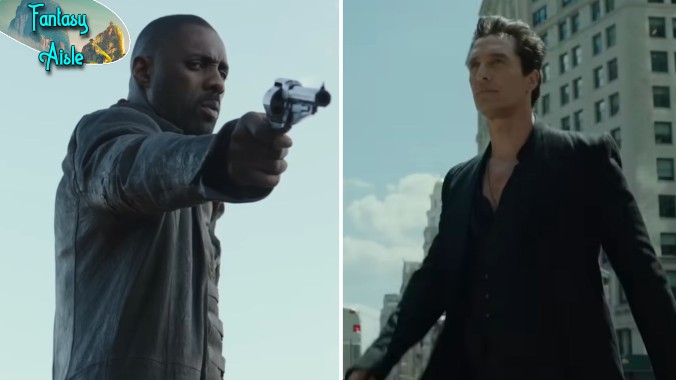Why Is Stephen King’s ‘The Dark Tower’ So Hard to Adapt?
In honor of the prolific author's new book, I returned to the shitty remakes of his self-described "magnum opus" in an attempt to figure out what went wrong.
Photo: Screenshot BooksEntertainment
This is the second installment of Fantasy Aisle, a monthly column from Jackie Jennings about everything related to horny dragon books.
Horror fans might deny it, but their patron saint, Stephen King, is a fantasy writer. Non-genre fans will scoff at all of this—haunted houses versus dragons? It’s all imaginary, you say. But we take our classifications seriously in the geek world, and labeling anything as “fantasy” can have serious repercussions, thanks to its association with, well, geeks.
However, now that King’s new short story collection—largely composed of horror stories, including a sequel to Cujo—is out, I’ve been revisiting his celebrated epic, The Dark Tower, a shining example of King’s indisputable fantasy-writing talents. Like nearly every popular fantasy series, there have been several bungled attempts to adapt it for the screen. Now, with another reportedly in the works (hopefully one that remains un-bungled), I turned to the earlier versions only to discover that one of my favorite things about it—its inarguable fantasy bent—is what ruined these previous attempts.
The scale of The Dark Tower is fantastical in itself. The first book (The Gunslinger) was published in 1982; the eighth and final book, The Wind Through The Keyhole, in 2012. The completed series is over 4000 pages.
At its most basic, the series follows the story of gunslinger Roland Deschain and his quest to save existence. It hops through worlds and genres. There are elements of horror (obviously) and the trappings of a spaghetti Western (less obvious).
-

-

-

-

-

-

-

-

-

-

-

-

-

-

-

-

-

-

-

-

-

-

-

-

-

-

-

-

-

-

-

-

-

-

-

-

-

-

-

-








































